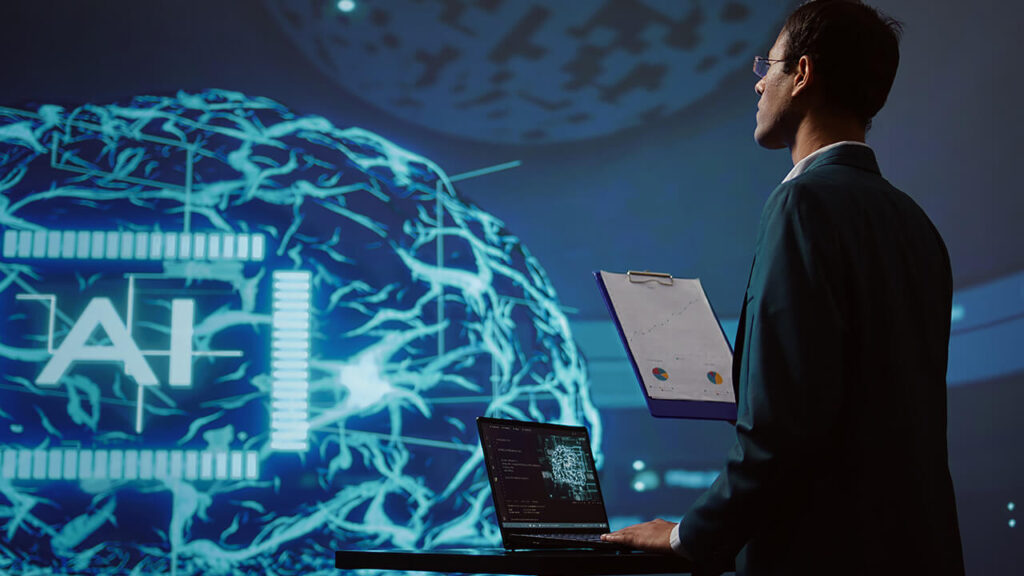Artificial Intelligence (AI) is one of the most exciting and in-demand fields in technology today. From self-driving cars and voice assistants to predictive analytics and recommendation systems, AI is reshaping our world.
If you’re interested in becoming an AI professional, enrolling in an AI developer course is a smart move. But what exactly will you learn?
This guide covers everything you can expect from a top AI developer course—skills, tools, concepts, and career benefits. Whether you’re a beginner or a software developer looking to upskill, this roadmap will show you what lies ahead.
1. Introduction to Artificial Intelligence
Most AI developer courses start with a foundational overview. You’ll explore the history of AI, its real-world applications, and its different branches like machine learning (ML), robotics, and computer vision. This module lays the groundwork for more advanced topics later in the course.
Key topics include:
- Definition and types of AI
- Real-life use cases in various industries
- Differences between AI, ML, and deep learning
2. Python Programming for AI
Python is the preferred language for AI development because of its simplicity and the vast number of libraries available. A good AI developer course includes Python basics, especially tailored for AI use.
What you’ll learn:
- Data types and control structures
- Functions, loops, and object-oriented programming
- NumPy, Pandas, and Matplotlib for data manipulation and visualization
3. Mathematics for AI
Mathematics is the backbone of AI algorithms. A solid understanding of linear algebra, probability, and statistics is essential. Most courses simplify these topics for developers without overwhelming them.
Topics covered:
- Matrix operations and vectors
- Probability distributions and Bayes’ theorem
- Descriptive and inferential statistics
4. Machine Learning Algorithms
This is where things get exciting. You’ll dive into the core machine learning concepts and algorithms that power AI systems.
Algorithms include:
- Linear and logistic regression
- Decision trees and random forests
- K-means clustering
- Support Vector Machines (SVMs)
- Naive Bayes classifiers
You’ll also learn how to train and test models using supervised and unsupervised learning techniques.
5. Deep Learning and Neural Networks
Deep learning mimics the human brain to solve complex tasks like image recognition and language processing. Most AI developer courses offer a dedicated module on deep learning.
What you’ll cover:
- Structure and function of neural networks
- Activation functions and loss functions
- Convolutional Neural Networks (CNNs)
- Recurrent Neural Networks (RNNs)
- Using TensorFlow and Keras for building models
6. Natural Language Processing (NLP)
NLP focuses on the interaction between computers and human language. If you’re fascinated by chatbots or voice assistants, this module is for you.
Topics include:
- Tokenization and text preprocessing
- Sentiment analysis
- Named entity recognition
- Language models and transformers like BERT
7. Tools and Frameworks
Learning to use the right tools is critical in any AI developer course. You’ll get hands-on experience with popular platforms and libraries.
Commonly used tools:
- Jupyter Notebooks for interactive coding
- Scikit-learn for machine learning
- TensorFlow and PyTorch for deep learning
- OpenCV for image processing
- Google Colab for cloud-based training
8. AI Ethics and Responsible Development
Ethical AI is a growing concern. Courses now include dedicated lessons on the responsible use of AI technologies.
Topics covered:
- Bias in datasets and algorithms
- Transparency and accountability
- AI regulations and data privacy
9. Real-World Projects
Theory is important, but practical experience is what makes you job-ready. Most top AI developer courses include capstone projects that simulate real-world challenges.
Project examples:
- Build a movie recommendation engine
- Design a spam detection system
- Create a chatbot using NLP
- Train a deep learning model for image classification
These projects help you build a strong portfolio, which is crucial when applying for jobs.
10. Career Opportunities and Certification
Upon completing your AI developer course, you’ll be equipped with the knowledge and tools needed to land high-paying roles in the tech industry.
Career paths include:
- AI Engineer
- Machine Learning Developer
- Data Scientist
- NLP Engineer
- Computer Vision Specialist
Most courses also offer certificates of completion or even industry-recognised credentials like the TensorFlow Developer Certificate or Microsoft AI Engineer certification.
Bonus: Soft Skills for AI Developers
While technical expertise is critical, soft skills like problem-solving, communication, and teamwork are also essential. Good AI developer courses encourage collaboration through peer reviews and group assignments.
Final Thoughts
Taking an AI developer course is one of the smartest investments you can make for your future in tech. These courses are structured to build your skills from the ground up—starting with Python and math fundamentals, all the way to deploying AI models in real-world applications.
Whether you’re aiming to become a machine learning engineer or simply want to explore the world of artificial intelligence, understanding what you’ll learn in an AI developer course helps you make an informed decision. Choose a course that balances theory with practical application, and you’ll be well on your way to becoming an AI expert.

